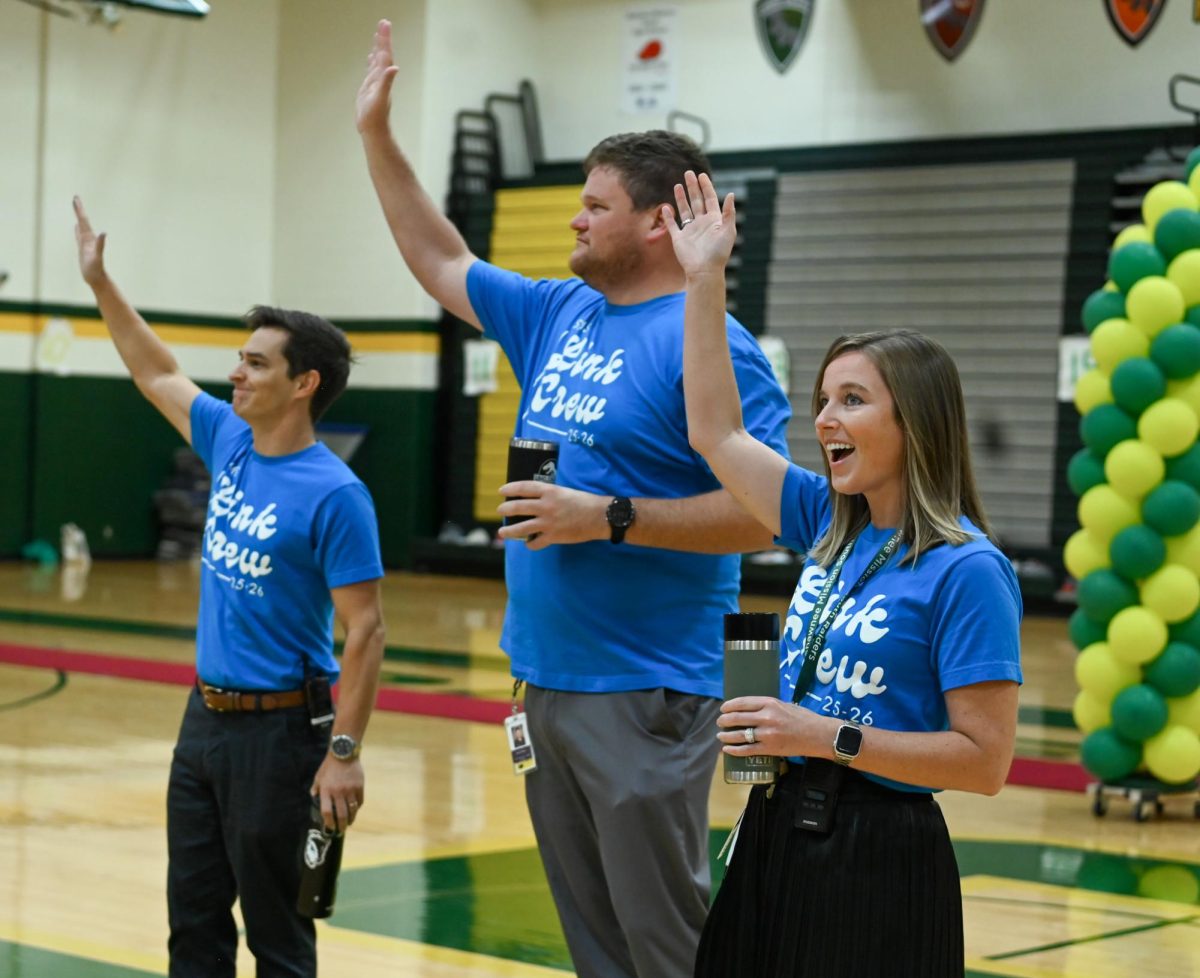Windows down, music up, sun shining, not a care in the world. Teenager drives down the street on her way to pick up her friends. Oh, I love this song! Teenager thinks, so she turns it up. It’s summer, and that means freedom. Teenager can do whatever she wants because it means no school and no responsibility. Teenager doesn’t realize that she is going 10 over the speed limit, and not focusing on the road but instead on the radio and singing along. Crash!
love this song! Teenager thinks, so she turns it up. It’s summer, and that means freedom. Teenager can do whatever she wants because it means no school and no responsibility. Teenager doesn’t realize that she is going 10 over the speed limit, and not focusing on the road but instead on the radio and singing along. Crash!
Many South students know what it’s like to be a teenage driver, but they do not know what it’s like to be in an accident. They don’t know the instantaneous worry and fear, or what it’s like to be stunned and confused. Then comes the information exchange, the insurance claim, possibly a court date, then getting the car repaired or in some cases, finding a new car. However, there are some that have experienced these misfortunes first-hand.
“[The first time I drove by myself, I felt] kind of awesome. Worried and apprehensive because you’re not used to it, but it was fun,” senior Austin Feathers said.
Many teens have this same feeling the first time they drive. They feel free, as though they no longer need to rely upon their parents for rides to and from wherever. They feel like they can now go wherever, do whatever, whenever they want.
“I was scared, but it felt nice to be able to do my own thing,” junior Gentry Toman said.
Teen drivers, however, often face the most problems on the road. From distractions to experience-based difficulties, many seem to have troubles on the road for one reason or another. They also seem to be looked down upon by more experienced drivers.
“[They think] we’re bad drivers. That we’re the crazy ones on the road, but for the most part that’s [usually adults],” junior Cynthia Raymer said.
Teens also face many pervasive stereotypes from other drivers. Teens are often seen as the worst drivers on the road. They are often seen as the drivers who cause the most wrecks, get in the most wrecks, and don’t know how to drive.
“[We face] the pressure to text or talk on the phone or blast music when you’re [in the car with friends] they’re jamming or talking or looking at pictures you want to do it too,” senior Kelsey Ling said. Many students have, unfortunately, experienced different kinds of accidents throughout their time as teenage drivers. Senior Courtney Robles got pulled over for speeding. She was going 86 in a 65 mph zone. The ticket cost her $212, and she realized how much of a financial burden it can be. It has changed her for the better as a driver.
“I’m more careful, I actually go the speed limit and I don’t want to get pulled over again and pay another $212,” she said.
Toman got into an accident on her way to school when she failed to yield right of way to an oncoming driver. It was dark, and neither of the two drivers saw each other coming, causing the collision. Toman felt bad after the wreck, as if she had some responsibility for the accident and thought that it was reflecting poorly on teenage drivers.
“I think a lot of it was me being a teenager, I felt like I was reinforcing stereotypes,” Toman said.
Ling got into a similar accident last summer. She was going through a green light when a driver turning left failed to yield to her. The driver turned out in front of her, and they got in an accident. “I just remember sitting there and not knowing what happened,” she said.
Feathers got into an accident last winter. He was driving around on a snowy day and lost traction. He went up onto the median and collided with two small trees. The damages were less severe than Toman’s and Ling’s because they could be fixed. The back window had broken, the right front quarter panel and back left panel were dented, but all of these were replaceable or repairable.
“I pretty much saw it coming, and it happened and I was basically like ‘Okay this sucks. My parents are going to absolutely destroy me,’” Feathers said.
Raymer got into a wreck when driving home about a year ago. She was driving home with a friend, junior Abbey Price, and another friend from another school. When they were going through a green light, they were hit by a drunk driver who did not stop at a red light.
“You hear a sound, you feel pain, then you just don’t know what’s going on. I was in shock,” she said.
Price was also affected by the shock of the accident.
“It was scary, we were all so shaken up by it,” Price said.
Junior Ahmed Alasmar got into a wreck rather recently. He was slowing down to stop at a red light when the driver behind him did not seem to see him slow down. The driver rear ended him.
Car wrecks can be scary, possibly harmful, and very inconvenient for those involved. Accidents can result in many different expenses, from tickets to getting cars repaired to finding new cars. The financial burden can be lightened by insurance, but even then accidents can take a toll on the driver’s confidence.
“I was terrified because I thought that it was probably my fault even though I went through a green light,” Ling said.
After an accident, it can be hard for a driver to feel comfortable on the road again, even when they are not the ones driving. Not only is confidence an issue for teens, but simply being on the road when other drivers could possibly cause the accident.
“I was traumatized to the point I didn’t want to drive. Even sitting in a car, you would see someone behind you pull up and you weren’t sure if they were going to hit you again, so it was traumatizing,” Raymer said.
Even when teenagers do get back on the road after an accident, they are often apprehensive. If they are not, they have at least learned from their mistake, or learned to be more wary of other drivers or certain conditions that can make driving a hazard.
“I’m a much more careful driver. I might be doing something then that yellow light comes on in my head, and I remember ‘Okay, don’t want to do that again,’” Feathers said.
Teens are often viewed as the worst drivers on the road, but they also have the least experience. Even statistics say that teens are involved in the most crashes, but that does not mean that they are the cause for all of these accidents. Teens will inevitably face stereotypes and other difficulties that can be attributed to the fact that they have just begun driving. Though in some cases accidents are inevitable, teens can attempt to prevent them by remaining aware of their surroundings and practicing defensive driving.







